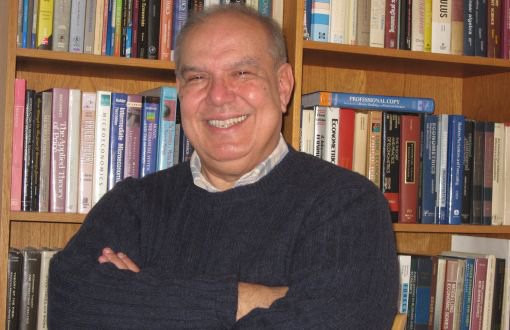University students had encountered massive police interventions when they protested Prime Minister Recep Tayyip Erdoğan on 4 December in front of the Dolmabahçe Palace in Istanbul and in Kurtköy, a district on the Asian side of Istanbul. Pendik (Istanbul) Chief Prosecutor İsmail Değirmenci who launched the related investigation about the police officers now decided to drop procedures.
As reported by Alican Uludağ in the Cumhuriyet daily, Prosecutor Değirmenci did not obtain concrete evidence that would create sufficient doubt as the bases for a civil trial concerning the alleged abstract offences committed by the suspects.
The prosecutor's decision only mentioned the incident in Kurtköy but neither referred to many young people who were severely injured and nor to a student who suffered a miscarriage due to the rough treatment. Furthermore, the beating of students at the police station and in the busses in front of the police station was not assessed at all.
bianet talked to former Adana Prosecutor Sacit Kayasu about the matter. According to Kayasu, the police might not have sent certain footage to the prosecutor's office. Selçuk Kozağaçlı, President of the Contemporary Lawyers Association (ÇHD), stated that the prosecutor who gave the decision to drop procedures became a complicit.
"Evidence might have been concealed"
Former Prosecutor Kayasu was responsible for a conviction of the Turkish government at the European Court of Human Rights (ECHR). He indicated that it was difficult to comment on the issue without having seen the file. Therefore, several possibilities could be taken into consideration.
"The footage shown on television of the incidents in Dolmabahçe and Kurtköy are not sufficient evidence for a prosecutor to open a case. Yet, did the prosecutor see those images?" Kayasu questioned. He noted that in case this footage and the report were in fact sent to the prosecutor and the prosecutor still decided to drop procedures nevertheless, then the aim might have been to cover up the incident.
Another possibility to consider was that the police did not send the footage as requested by the prosecutor, Kayasu said. In this situation, the decision for lack of jurisdiction would have been correct, he explained.
Kayasu added that at this stage it was not clear whether the prosecutor's office concealed and hence ignored evidence or whether evidence was not obtained. The victims should apply to a high criminal court, Kayasu concluded.
"Impunity is the culture of judiciary in Turkey"
ÇHD President Kozağaçlı on the other hand compared the decision to drop procedures due to lack of evidence to what is known as the term "policies of impunity" in judicial literature.
"Policies of impunity provide for the continuation of offences such as torture done by public officials, extrajudicial killings, abduction and making people disappear".
"Here, a crime was committed very openly and the perpetrators were clearly visible or at least could be arrested with a small investigation. Nevertheless, the judicial system, namely judges, prosecutors and supreme court judges, are covering up the issue with the policy of impunity".
Kozağaçlı underlined that the policy of impunity was also the actual reason for the chronic state of severe crimes committed against the people.
Pointing to the continuous impunity, Kozağaçlı said, "Regardless of the political formation of the Supreme Board of Prosecutors and Judges (HSYK), regardless of the judges at the special authority courts or of who elects prosecutors, this is the culture of the judiciary and it is done to protect public officials from punishment".
"The decision of the prosecutor will be objected of course. Then we will see how the judges reached this decision. But I am pessimistic because impunity can be interpreted as joint guilt. Unfortunately, as a matter of culture prosecutors and judges do not consider and do not see their complicity".
"Also the prosecutor watches television just like us"
In Kozağaçlı's opinion, it is very unlikely that the requested evidence was not forwarded from the police to the prosecutor's office.
He explained that the prosecutor and the affiliated police forces had the latest high technology at their disposal.
"This is not done because the images were not forwarded to the prosecutor onr because he did not watch it together with all of us but because of the culture of impunity".
"The city is surrounded by MOBESE (Mobile Electronic System Integration) cameras and all records are kept in the hands of the chief prosecution. The press provides the police forces with all images, 'negative' and 'positive'. Moreover, even if none of these were available, the prosecutor can watch television just like us. He can request those images". (EKN)





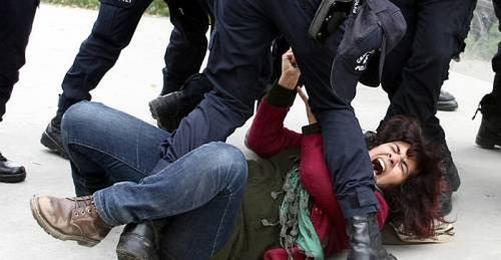

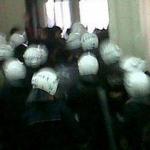
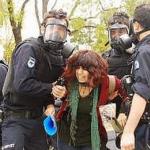
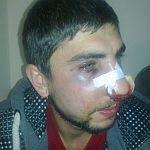

.jpg)


